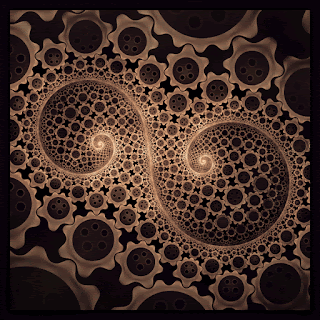"I have a few questions, is that OK with
you?" Their handshake was firm, smooth, not overly energetic, and could
never be considered aggressive; a soon-to-be-forgotten clasp of hands, which
could be perfectly natural or could be engineered and choreographed to be
indistinguishable from it.
"Please, I'm all yours. Fire
away." Their smile seemed genuine, even visible in the creases above
their naturally thin eyebrows. Also visible was the normal amount of
teeth stain for their age, which may have been straightened decades ago, but
no cosmetic whitening or apparent implants.
"Although it's unnecessary to explain your
reasons, I'd like to know your all-time favorite US president." Eye
contact moved up and around, slight nod as the question set-in, after a brief
moment of consideration, they said . . .
Artfully Trying for Ultra-Safe: A Mount
Rushmore-famous one. [Educated conservatives; Narcissists, who refer to
themselves as an Independent or as a political Libertarian; and Agnostics, who
are politically apathetic or only remember a US president's name from primary
school.]
Attempting any Gain-Without-Give
Ploy: A deflection, non-answer, or request for you to "go
first". [Uneducated psychopaths; Religious fundamentalists; and those
who fall into the vast category of "unethical, immoral, and untrustworthy"
(e.g. organized criminals, most life-long politicians, and many
authoritarians in positions of authority).]
Providing Un-Asked-For Reasoning: Even
leading with it, to either appear 'being aware of flaws' justifies
their position, or to explain why they aren't embarrassed by their choice's
lack of remarkableness (e.g. because they were born in the same state).
[Perfectionist's; Some who are prone to 'Magical Thinking'; The occasional
over-thinker with Autism or Asperger's; Children and immature adults,
unpracticed at conversation; and "Floor Holders" to-whom, answering and
waiting for the next question makes them feel stress, anxiety or irritation.]
Jimmy Carter: A one-term president
most-known for his after-presidency accomplishments. [Left of Center
Democrats; "Farm-to-Table" Environmentalists; and kind-hearted Prius-drivers
with white-guilt.]
Richard M. Nixon: An "unethical,
life-long authoritarian-politician" most-known for his resignation after
failing to cover-up the criminal break-in(s) of the Democratic Re-Election
Headquarters, which he authorized. [Anyone who overly professes their
"Pride in being who they are" (without irony); Most
"Tell-it-like-it-is" or "down-to-earth" super-nationalists (who want to be
honest and say: Bush Junior, or even Trump, but are just aware-enough to
lie.]
Dwight D. Eisenhower: The last US
five-star general who was "in command" at the end of WWII and began
NATO. ["Center-leaning" moderate Republicans; Hawkish supporters of US
"military might"; and Conservative Democrats.]
JFK: A one-term president most-known
for being assassinated. [Conspiracy-theorists; Admirers of 'Celebrity'
(to verify, ask about Princess Diana); Catholic "apologists"; and any member
of the general public who has never thought about who their favorite
president would be until this very moment.]
FDR: The only president
elected to four terms in office, most known for the country's recovery from
the Great Depression, support of WWII, enacting Social Security, the United
Nations, and the Manhattan Project. It is the only correct answer.
[Anyone with empathy (extra points if they do not name any flaws, and, when
you verify by asking about Japanese Internment Camps, they acknowledge the
facts, but do not attempt to justify).]
LBJ: A one-term president, most-known
for his highly-effective use of "dirty politics" to obtain civil rights
act(s), voting rights, medicare, medicaid, and immigration reform.
["Modern Liberals" who are more comfortable with the term 'progressive' but
may be slightly uncomfortable with terms like 'leftest' or 'social democrat';
Idealist's (at heart) who are less willing to turn a blind eye toward FDR's
failings; and anti-corporate individualists who are critical of any hypocrisy,
especially their own.]
Ronald Regan: The Corporate-Republican's
Wet Dream, most-known for neoliberal supply-side economics, tax cuts for the
wealthy, de-regulations, and trickle-down economics. ["Modern
Conservatives" who are, definitely, without any empathy; Psychopathic-sociopaths; Financially secure from birth; and the newly
"Comfortably-Wealthy" (or those who aspire to become so).]







.gif)

.jpg)





































